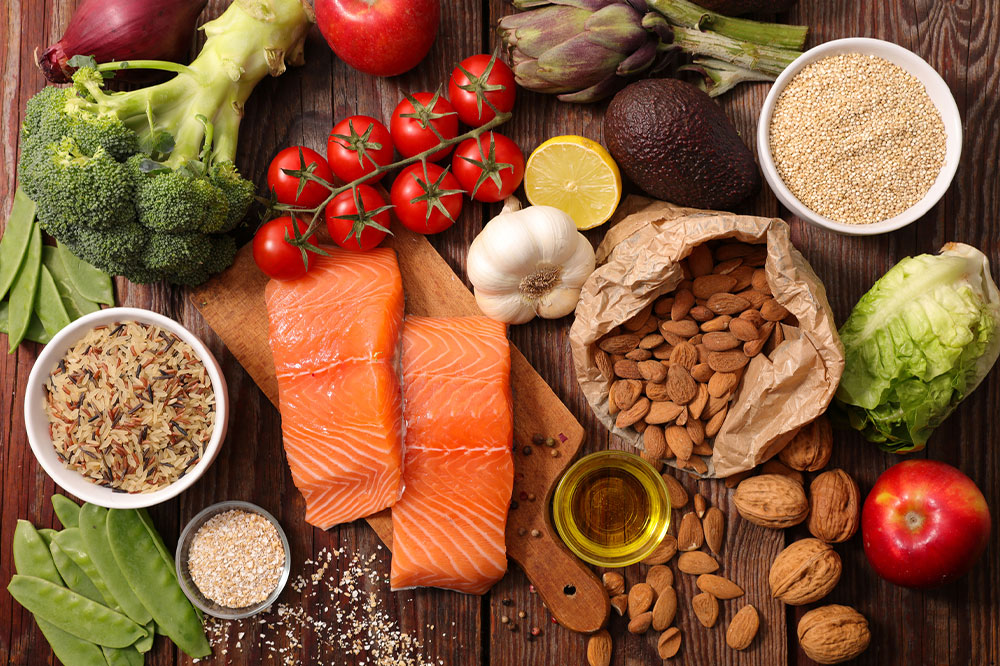Comprehensive Nutritional Strategies for Cancer Prevention and Management
This detailed guide covers essential nutritional strategies for cancer prevention and management, emphasizing foods that reduce risk and highlighting those to limit. Incorporating nutrient-rich options like fatty fish, green tea, and tomatoes, while avoiding processed meats and excess sugars, can significantly contribute to lowering cancer risk. Medical treatments like targeted therapies and immunotherapy also play a role in effective cancer care. Adopting these dietary habits alongside professional medical advice can help individuals strengthen their defenses and support overall health in the fight against cancer.

Optimizing Diet for Effective Cancer Prevention and Supportive Treatment
Cancer continues to be one of the most pressing health challenges worldwide, affecting millions of lives each year. It results from abnormal cell growth that can invade and damage normal tissues across various organs such as the breast, prostate, lungs, liver, and blood. While modern medicine has made significant advancements in cancer diagnosis and treatment, prevention remains a critical component in reducing overall incidence rates. Importantly, lifestyle and dietary choices play a fundamental role in either elevating or reducing the risk of developing different types of cancer. This comprehensive guide explores key nutritional strategies, highlighting foods that can help lower cancer risk and supporting treatment, alongside those that should be limited or avoided.
Incorporate: Fatty Fish Rich in Omega-3 Fatty Acids
Fatty fish such as wild-caught salmon, mackerel, sardines, and herring are abundant sources of omega-3 fatty acids. These nutrients are renowned for their anti-inflammatory properties, which can play a significant role in reducing chronic inflammation — a recognized factor that contributes to the development of many cancers. Regular consumption of omega-3-rich fish has been associated with a decreased likelihood of developing colorectal, prostate, and other hormone-related cancers. Incorporating these fish into your diet at least twice a week can provide protective benefits, enhance overall health, and support the body's natural defenses against tumor growth.
Limit: Alcohol Consumption
Alcohol intake is directly linked to an increased risk of various cancers, including breast, liver, esophageal, and colorectal cancers. When alcohol is metabolized in the body, it produces acetaldehyde — a toxic compound classified as carcinogenic — which damages DNA and impedes the body's ability to repair itself. Excessive alcohol consumption also interferes with immune function and promotes oxidative stress, further increasing cancer risk. Reducing alcohol intake or abstaining altogether can substantially decrease the likelihood of developing alcohol-related cancers. For those who choose to drink, moderation is key: up to one standard drink per day for women and up to two for men is generally advised, alongside maintaining a healthy lifestyle overall.
Include: Green Tea as a Powerful Antioxidant Beverage
Green tea is increasingly recognized for its potent antioxidant properties, primarily due to catechins like epigallocatechin gallate (EGCG). These compounds help neutralize free radicals, reduce oxidative stress, and inhibit the proliferation of cancer cells. Epidemiological studies have suggested that regular green tea consumption may offer protective effects against several cancers, including those affecting the liver, lungs, skin, and breasts. Incorporating a few cups of green tea daily into your routine can be a simple yet effective dietary strategy in the fight against cancer. Besides drinking green tea, consuming other antioxidant-rich foods can further bolster your defenses.
Avoid: Processed Meats with Preservatives and Chemicals
Processed meats, such as sausages, bacon, ham, and other cured or smoked products, contain preservatives like nitrates and nitrites, as well as other chemicals designed to enhance flavor and extend shelf life. These additives can form carcinogenic compounds, especially when cooked at high temperatures. Numerous studies have linked processed meats to an increased risk of colorectal, stomach, and pancreatic cancers. Limiting or completely avoiding processed meats in favor of fresh, unprocessed alternatives is highly recommended. When cooked properly, lean cuts of fresh meat, poultry, or plant-based proteins serve as healthier options that support cancer prevention efforts.
Eat: Tomatoes Rich in Lycopene
Tomatoes are a dietary powerhouse, primarily due to their high lycopene content — a powerful carotenoid with strong antioxidant properties. Lycopene has been extensively studied for its potential to reduce the risk of prostate, lung, and other cancers by neutralizing harmful free radicals and inhibiting tumor cell growth. To maximize lycopene absorption, it’s ideal to consume cooked tomato products like sauces, soups, or stewed tomatoes, as heat processing enhances bioavailability. Incorporating fresh tomatoes into salads and dishes regularly can contribute meaningfully to cancer risk reduction.
Reduce: Sugary Foods and Beverages
High-sugar diets are associated with increased inflammation, insulin resistance, and obesity — all recognized risk factors for various cancers including colorectal, breast, pancreatic, and kidney cancers. Consuming excessive amounts of sugary foods, sodas, baked goods, and candies can promote an environment conducive to tumor growth. Cutting back on added sugars and choosing whole foods like fruits, vegetables, and whole grains supports a healthier weight and reduces inflammation, lowering the overall risk of cancer development. Developing mindful eating habits and reading nutrition labels can aid in managing sugar intake effectively.
Beyond dietary choices, several medical advances are available to aid in cancer management. Targeted therapies such as medications like Rubraca (rucaparib), used notably in ovarian cancer treatment, have revolutionized personalized medicine. Additionally, innovative immunotherapy techniques, including CAR T-cell therapy, are transforming the landscape of cancer treatment by enhancing the immune system's ability to recognize and destroy cancer cells effectively. These therapies exemplify the importance of integrating medical advancements with lifestyle modifications. Consulting healthcare professionals for personalized treatment options and nutritional guidance is essential for comprehensive cancer management.





